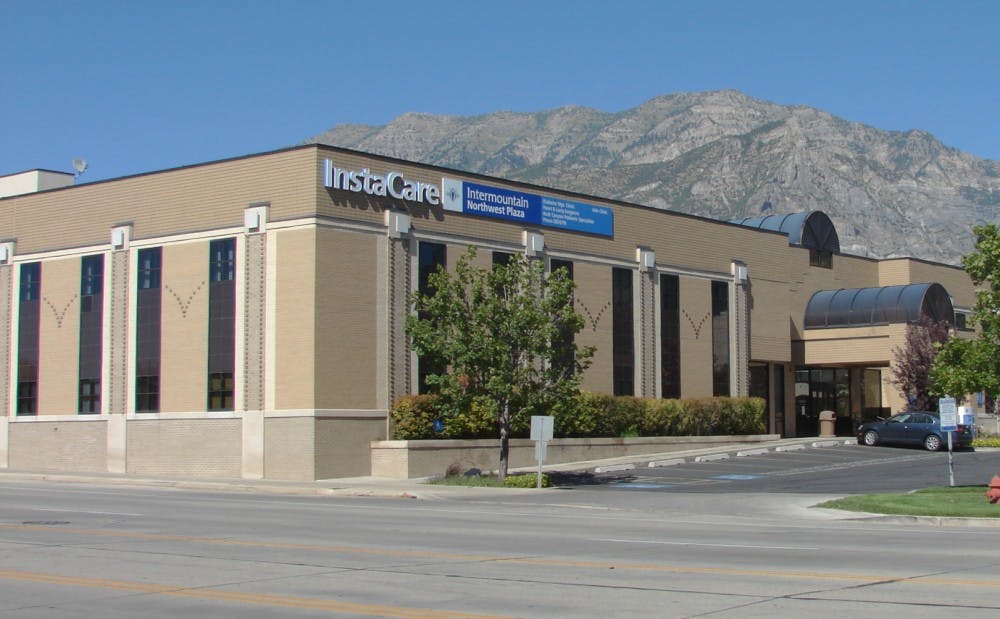In the past year, shortages of lifesaving medicines and high prices for generic drugs have made headlines across the medical world. Now a group of hospital organizations are taking matters into their own hands.
Intermountain Healthcare, a nonprofit hospital group in Salt Lake City, Utah, has announced that it has begun a collaboration with more than 450 hospitals to form a nonprofit generic drug company with the goals of making generic drugs more affordable and bringing healthy competition to the market. Kevin Schulman, a professor of medicine at the Duke University School of Medicine who wrote a paper on the generic drug market, is advising the effort.
“I see this as much more of a direct solution to solve these economic problems,” he said. “We need to prevent the excesses of drug prices in the generics markets.”
The new company—which includes Ascension, SSM Health and Trinity Health, in consultation with the U.S. Department of Veteran Affairs—will be FDA-approved and plans to either manufacture generic drugs themselves or sub-contract the production out to manufacturing organizations. This will hopefully result in lower costs and more predictable drug supplies.
Schulman explained that the issues are related to the economics around drug prices. Patent laws prevent competitors from stealing other companies' ideas, but after a certain amount of time, the patent runs out and others in the drug market are allowed to manufacture the product—resulting in generic drugs.
“The whole idea was that generic drugs would reduce the price of brand-name drugs over time,” he said.
However, what often happens is that the sudden competition causes manufacturers to reduce their prices and many then have little incentive to stay in the market because the price is so low. The companies decide to concentrate on other areas and stop making the generic drug, resulting in a drug shortage.
Another problem occurs when one manufacturer has a monopoly over production of a drug and raises the price arbitrarily, Schulman said. The most famous example of this is Martin Shkreli, the founder and CEO of a drug company that increased the price of the drug Daraprim from $13.50 to $750.
Some of the hikes have led to government investigations. The increase of the antibiotic doxycycline hyclate from 5.6 cents a pill in 2012 to $3.65 in 2013 resulted in state and federal inquiries. In 2015, Valeant Pharmaceuticals International bought up old medicines such as heart drugs Nitropress and Isuprel and raised the prices, which led to Congressional hearings.
According to a press release from Intermountain Healthcare, some generic drug prices have increased by more than 1,000 percent in only a few months. But research suggests that prices for generic drugs can be reduced to a fraction of their costs.
“It’s an ambitious plan,” said Marc Harrison, president and CEO of Intermountain Healthcare. “But healthcare systems are in the best position to fix the problems in the generic drug market. We witness, on a daily basis, how shortages of essential generic medications or egregious cost increases for those same drugs affect our patients. We are confident we can improve the situation for our patients by bringing much needed competition to the generic drug market.”
Schulman explained that he got involved in the project when the Intermountain doctors reached out to him about a year ago. They had read a paper he wrote on ways to promote competitive generic drug markets in the U.S. and wanted to see if Schulman thought their approach had a chance of making a difference.
Since then, Schulman has worked on their national advisory committee and attended a series of conferences about the topic. Other advisors include Clayton Christensen, professor at Harvard Business School, and Don Berwick, president emeritus of the Institute for Healthcare Improvement, along with Bob Kerrey, a former Nebraska governor, U.S. senator and pharmacist.
So far, hundreds of hospitals have agreed to buy products from the new company, Schulman noted. Many will have three-year agreements to purchase a certain quantity of the drugs.
Funding is coming from Intermountain Healthcare along with some of the other health systems involved, he said. Although he’s never seen a collaboration like this before, he said he doesn't think there will be any legal issues with it since it will only be a portion of the generics market.
“All the consolidation has made these economic issues worse, which is why you have to do something like this new organization,” he said.
Although the partnership’s future is uncertain, Schulman said it could be a long-term player in the market.
“I think of it as an insurance policy to protect the market from adverse behavior and price manipulation,” he said.
Get The Chronicle straight to your inbox
Signup for our weekly newsletter. Cancel at any time.

